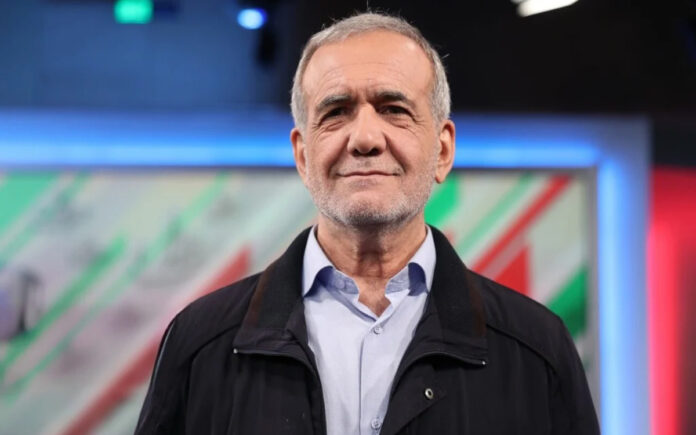New York: Iran’s president has accused Israel of attempting to drag the Middle East into a full-scale war by provoking Tehran to engage in the ongoing conflict with Hezbollah in Lebanon. Speaking to journalists upon his arrival in New York for the United Nations General Assembly, President Masoud Pezeshkian warned that such escalation could have “irreversible” consequences.
“We do not wish to be the cause of instability in the Middle East as its consequences would be irreversible,” Pezeshkian stated. He emphasized, “We want to live in peace, we don’t want war. It is Israel that seeks to create this all-out conflict.”
Pezeshkian, who is regarded as a moderate politician, accused the international community of remaining silent in the face of what he termed “Israel’s genocide” in Gaza. His call for a resolution to the Middle East conflict through dialogue came on a day when Israel launched intense air strikes against Hezbollah, marking one of the deadliest days in Lebanon amidst nearly a year of conflict.
“We will defend any group that is defending its rights and itself,” Pezeshkian said when asked whether Iran would intervene in the conflict between Israel and Hezbollah. He did not provide further details on Iran’s potential involvement.
European Union foreign policy chief Josep Borrell, also present in New York, described the situation as nearing a full-fledged war, urging world leaders to take immediate action to prevent further escalation. “Here in New York is the moment to do that,” he stated.
The ongoing hostilities have displaced tens of thousands of people from towns and villages on both sides of the border due to near-daily exchanges of fire between Israeli forces and Hezbollah. Israel has indicated a preference for a diplomatic solution that would push Hezbollah further away from the border, yet Hezbollah maintains that only an end to the war in Gaza will halt the fighting. Efforts for a Gaza ceasefire remain stalled after months of unsuccessful negotiations facilitated by Qatar, Egypt, and the United States.
Also Read | Antony Blinken Advocates for UNSC Reform: Permanent Seats for India, Germany, and Japan
Iran’s regional policy is directed by the elite Revolutionary Guards, who operate under the authority of Supreme Leader Ayatollah Ali Khamenei, Iran’s highest authority. Since taking office, Pezeshkian has reiterated Iran’s anti-Israel position and support for resistance movements across the region.
In response to a question about potential retaliation for the assassination of Hamas leader Ismail Haniyeh on Iranian soil in late July, Pezeshkian remarked, “We will respond at the appropriate time and place, in an appropriate manner.” The killing of Haniyeh, attributed to Israeli actions by both Tehran and Hamas, has heightened fears of direct confrontation between Iran and Israel amidst the backdrop of the ongoing Gaza conflict and escalating tensions in Lebanon.
Also Read | Legal Troubles Prompt Telegram’s Durov to Tackle Extremist Content Head-On
Iran’s Revolutionary Guards and Khamenei have vowed “severe” retaliation for Haniyeh’s assassination, which occurred during his visit to Tehran. So far, Iran has refrained from direct retaliation against Israel, which has neither confirmed nor denied its involvement.
According to three senior Iranian officials speaking to Reuters in August, Tehran has engaged in significant dialogue with Western countries and the United States to determine a calibrated response against Israel for Haniyeh’s assassination. Pezeshkian noted, “We were told that within a week there will be a ceasefire agreement” between Israel and Hamas, “but that week has never come and instead Israel has kept expanding its attacks.”



